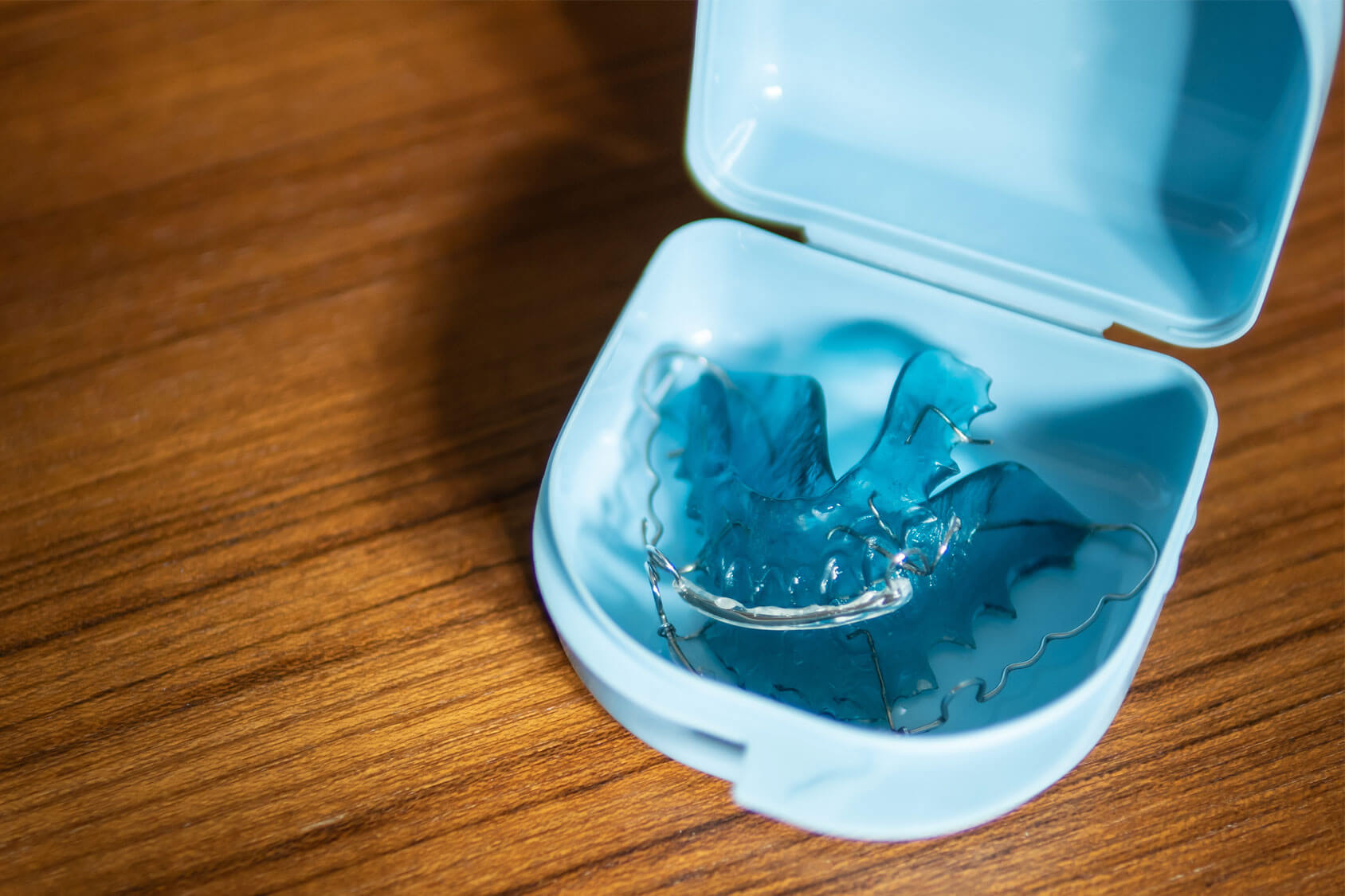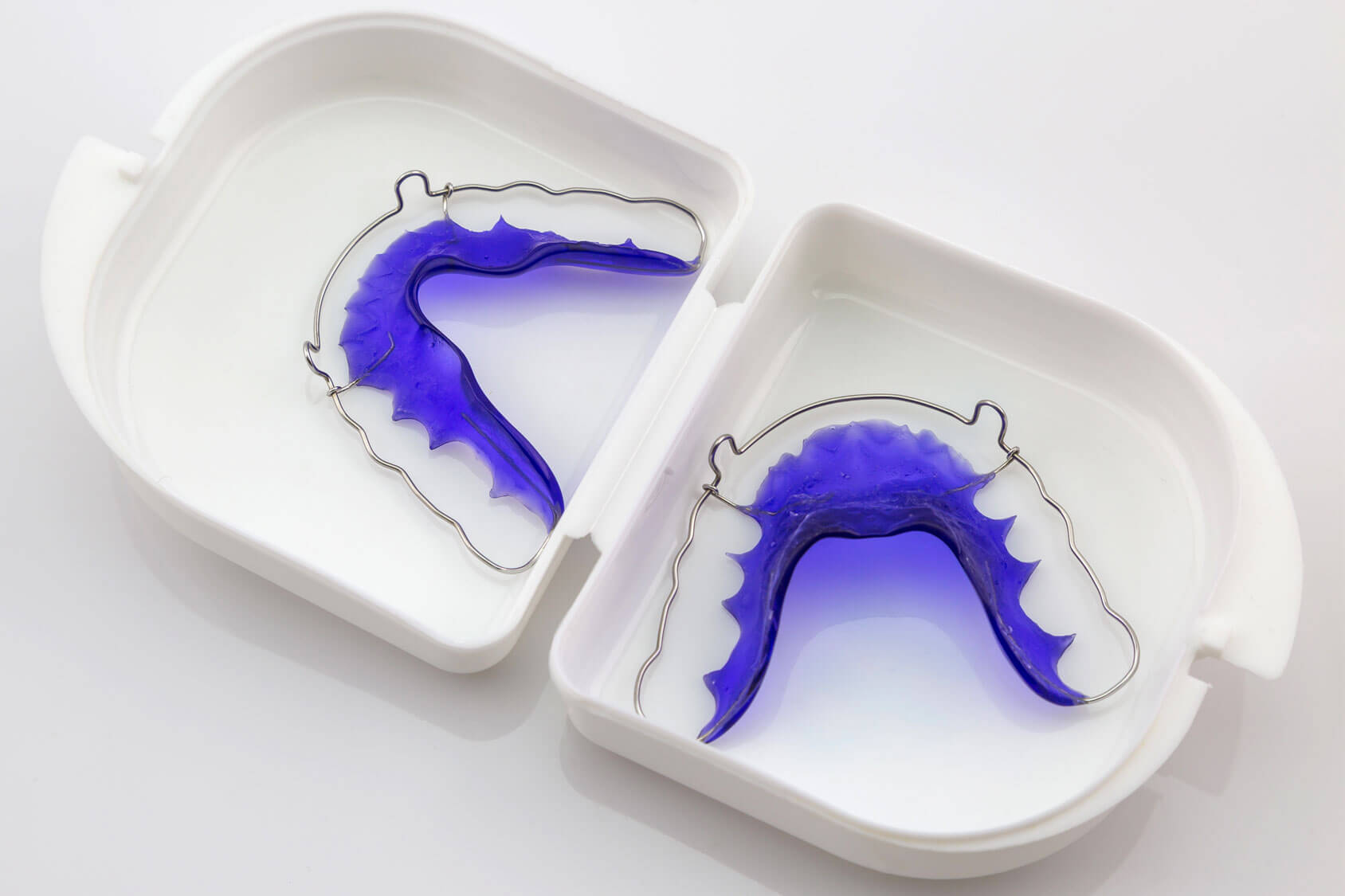Retainers

Retention Treatment
When we remove your braces, we will begin the retention stage of your treatment. The retention phase of your treatment in our office lasts for 12 months, with periodic checkups. Your final orthodontic result depends on your retainers, so follow through with the hard work you’ve put in so far and remember that retainers are with you for life… Your retainer should be worn every night for the rest of your life. “Every night, pajamas on yourself, pajamas on your teeth” as Dr. V says. Because teeth continue to move throughout life, it is recommended that you continue to wear your retainers as instructed. There are a variety of retainers. Some are removable and some are fixed-that is, they are cemented to your teeth. Dr. V will provide the kind of retainer that best maintains the new positions of your teeth. Removable retainers need to be worn every night. If you miss a night or two, wear the retainer full time the next day and bite down to seat it fully. The teeth may be a little sore, but the teeth should realign. If they do not and the retainer does not fit, call the office immediately.Retainer Care
Clean your retainer at least once a day with a toothbrush and water. Soak the retainer in Efferdent or denture cleaner using cool water once a week for five-ten minutes.

Retainer Storage
When not being worn, you should always keep your retainer in the case you have been given. Do not wrap the retainer in a napkin as that is the most common way they are lost.

What’s Normal
Some soreness or tenderness the first few days until teeth get used to the appliance. You may try Tylenol or Advil to help reduce the pain. Some changes in speech and excess saliva for the first few days until the tongue gets used to the retainers is also normal.
What’s Not Normal
Difficulty getting the retainers in. If the retainer is hard to get in, or it is causing pain in the teeth after the initial adjustment period, you may not be wearing it enough and there may be some minor movement of the teeth. If this happens, try to wear the retainer all the time to see if things adjust. If they do not or if you cannot get the retainer in at all, please call the office immediately so we can help you.

Bonded Retainer (Fixed Retainer)
As long as you are doing a good job keeping the fixed retainer clean, it may remain in your mouth indefinitely.Retainer Care
Floss, floss, floss. It is very important that you brush and floss thoroughly, paying special attention to the fixed retainer. You will be given flossing instructions using super floss or floss threaders for that area. Be certain that you understand how to use them and floss daily! Your general dentist or dental hygienist can check the fixed retainer at each of your oral hygiene visits. If your fixed retainer becomes detached from any of the teeth, please call the office immediately.What’s Normal
Your bite may feel slightly different until you get used to having the retainer in the mouth. It may take a few days for your tongue to get used to the wire and bonding on the inside of the front teeth.
What’s Not Normal
Anything sharp or poking the tongue. If this happens, the wire may have broken and teeth can shift. Please call the office so we can check the retainer.
You feel you are biting heavy on the retainer glue. If this happens please call us so we can adjust the retainer.
To maintain the best results, it is very important that you follow your retention schedule. If the schedule is not followed, your teeth may shift to the extent that the results we both worked so hard to obtain will be compromised, and re-treatment, with additional expense, would be involved. Our staff will help you in any way possible to follow your retention guidelines. Please call the office if you have any questions.
We would like to thank you for your efforts in helping us treat your bite. The appliances are off, your smile is delightful, and we trust you are as satisfied as we are.


Let's Get Social